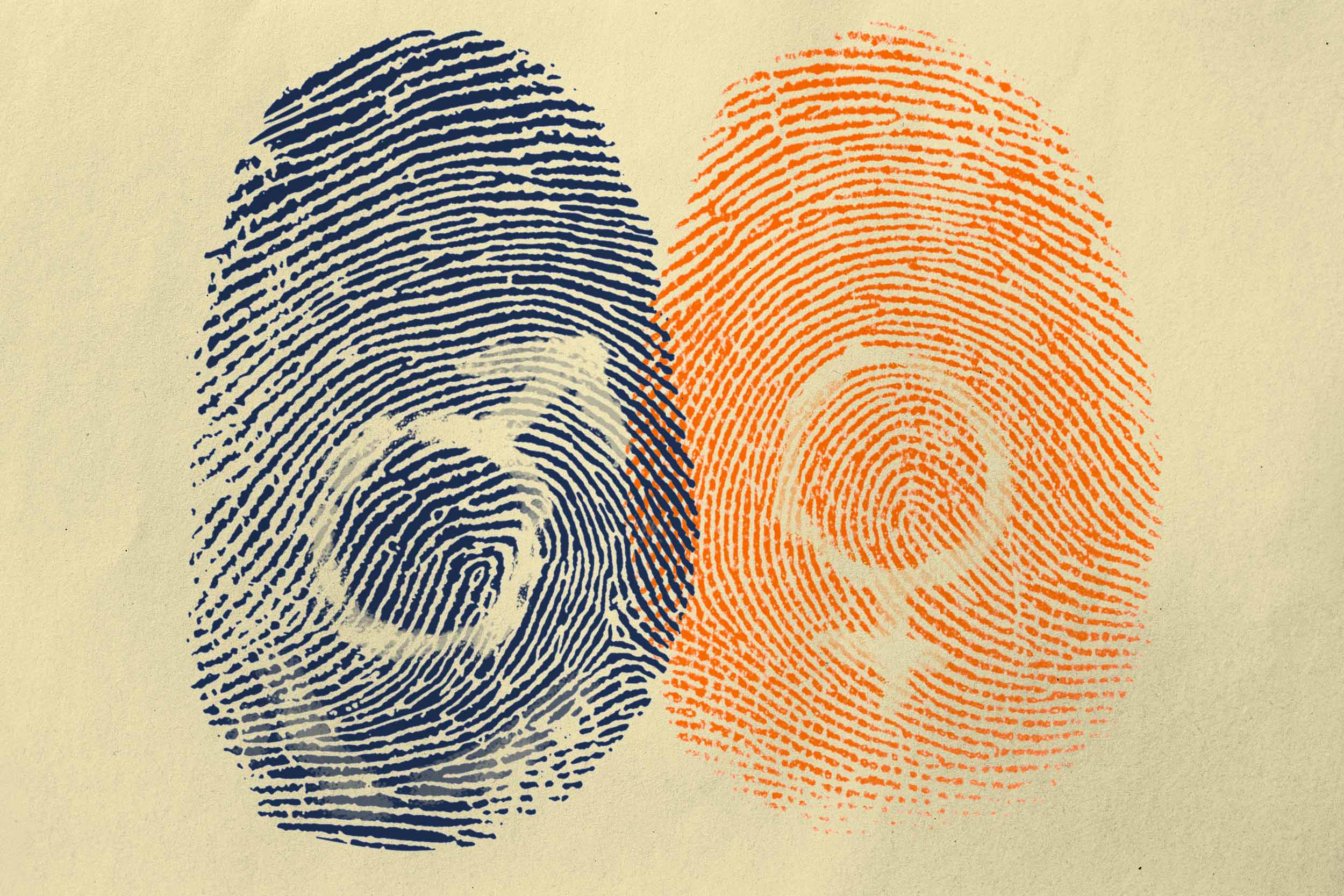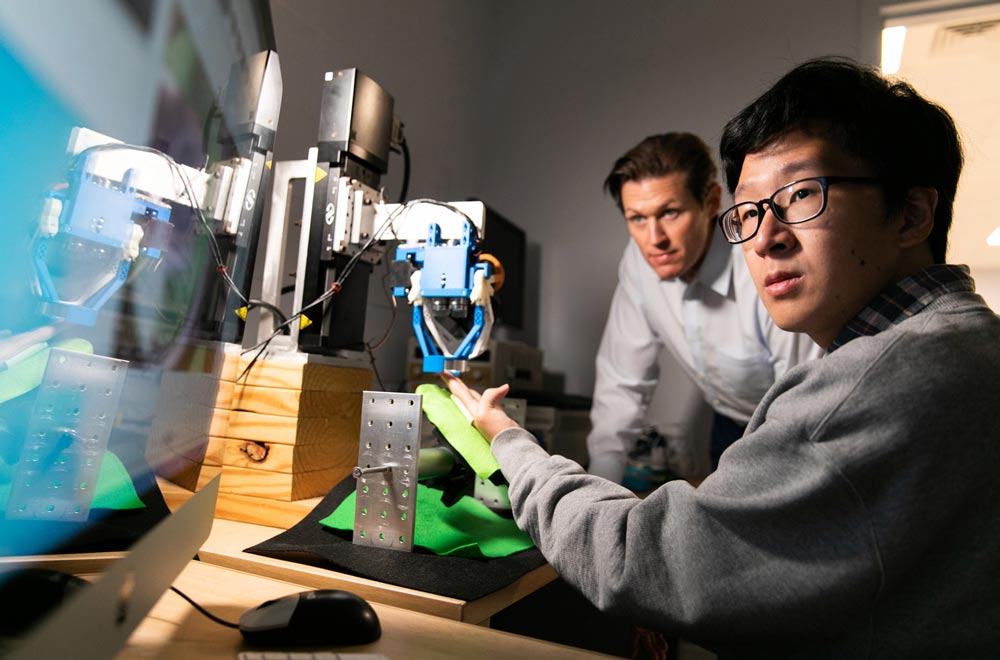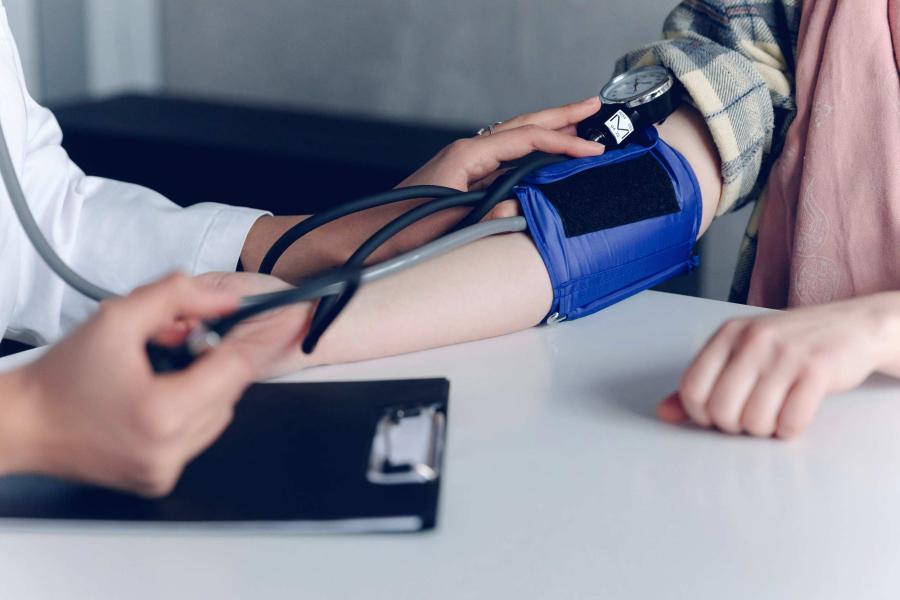Gerling studies, among other things, touch technology known as “haptics.” When you press your smartphone screen and feel a vibration, that’s haptics. But men and women generally experience haptics differently.
Understanding these subtle gender differences, and finding ways to minimize the differences, will help improve the expanding use of technology that relies on touch, like clothes with built-in sensors, advanced prosthetics, even interfaces that help human doctors control surgical robots. The more humans and machines interact, the more a deft sense of touch will be a critical link.
To find out why some people’s skin is more sensitive, Gerling and Bingxu Li, who earned a doctorate in systems engineering at UVA’s School of Engineering and Applied Science in 2023, used a special instrument to gently squish and examine the fingertips of 40 participants. Their experiments combined 3D imaging and biomechanical observations of how skin deforms when depressed. Then, adding statistical analysis and machine learning, they formed a better idea of how skin condition affects touch perception.
Age, gender and finger size are factors, and all have all been studied in touch research. But, Gerling said, few scientists have explored how skin “stiffness” plays a role.
Gerling and Li showed that applying a softener like hyaluronic acid to skin improves the sense of touch. While a person can’t change their age or finger size, using a skin softener can markedly improve touch and close the gender gap.
“Our findings indicate that the way people feel things depends on how their skin touches the object,” Gerling said. “Differences in skin contact affect how the nerves in the skin respond.”
Gerling, an expert in the science of touch, is among the several University researchers exploring how a one-size-fits-all approach to technology has limitations, like why seatbelts in cars protect men better than women. Gaining better insights on how men and women react differently with machines can lead to improved interfaces, researchers say.
Softer skin means more nerve fibers get activated in the skin, improving a fingertip’s ability to sense small changes, according to the researchers. So, for the softest, most sensitive touch, dab those finger pads with some hyaluronic acid.











